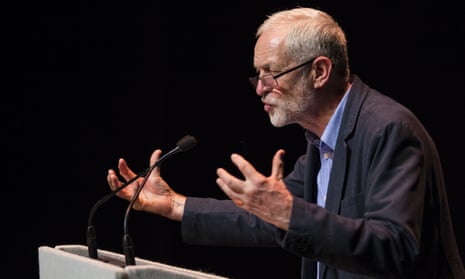It’s telling that Jeremy Corbyn and his team chose to give prime position to Labour’s recent victories over tax credits and disability benefit cuts in the full-page ad he took out in the Guardian last week. It may be the young who are the key demographic behind Corbyn’s popularity but, as the Labour leader knows, it would be wise to pay attention to another, equally ignored, section of society: disabled and chronically ill people; carers, and families struggling on social security.
Disabled People Against Cuts published an open letter last week backing Corbyn. “You have supported deaf and disabled people in so many ways over so many years,” it said of him. This was in stark contrast to the line: “During our campaign to save the independent living fund … we asked the then Labour leadership for help and got none.”
Just as Labour has for years assumed it would find support among the working class, so have they believed disabled voters have nowhere else to turn. This goes far beyond a feeling of being taken for granted. Disabled people – indeed, the vast range of people in Britain who rely on benefits – have not simply been ignored by Labour in recent years but rather actively sacrificed.
Caught in the trap of a Conservative-led coalition linking a global recession with a bloated benefits bill, Labour failed to create constructive, alternative welfare policy. Instead, by 2013, the party was promising it would be “tougher” than the Tories on benefits. Language like “people linger on benefits” – as used by the then shadow work and pensions secretary Rachel Reeves – was a betrayal of every family living with low education chances, job insecurity, illness, or disability. There were some efforts – a promise to scrap the bedroom tax and to reform the calamitous fit for work tests – but against a backdrop of a government orchestrating the removal of billions of pounds from so-called scroungers, it was the equivalent of offering disabled people a sticking plaster for multiple, gaping wounds.
The Labour leadership’s decision last year to abstain on the Tories’ disgraceful welfare bill – including a policy to cut some sickness benefits by £30 a week – was, for many, confirmation that the party had abandoned them. When you’re queuing in your wheelchair at a food bank because the government has taken your disability benefits, reassurance that Labour had tabled an amendment unsurprisingly means very little. Corbyn, notably, opposed the bill outright. But – as a symbol of how deep Labour’s struggles go – it is now increasingly clear that it is Corbyn, a rare, genuine voice for disabled people, who risks doing damage to us.
The accounts of ex-shadow cabinet members, such as Lilian Greenwood, or former supporters, like Lisa Nandy and Louise Haigh (none of whom could sensibly be dismissed as biased “Blairites”), show the reality of Corbyn’s leadership: an inability – and outright refusal – to either bridge divisions with colleagues or communicate policy to the country.
Yes, Corbyn has often faced a raw deal – in the press for one – but there is a long list of avoidable failures. Not least the missed opportunity to exploit the resignation of Iain Duncan Smith – the architect of some of the worst policies currently devastating disabled people.
These are not easy things to say. As a socialist, disabled person, and member of the Labour party all my adult life, I have waited for the leadership to focus on inequality, workers’ rights and social security. Yet for a leader to hold such principles while seeming uninterested and unable to gain power feels as despairing as a candidate who holds no principles at all.
The truth is, it is not enough to speak of being anti-austerity or to ignite passion in thousands of party members. The real job is to communicate ideas to a wider electorate who have never even used the word. Similarly, it is not sufficient to care about the people suffering through Conservative policy. Ultimately, the only thing that will actually help them is leading the party to government and reversing the inhumane cuts.
This goes to the centre of the existential questions Labour - and perhaps the entire left - is facing. Is pragmatism the antithesis of principle? Can we stay true to an increasingly leftwing base while reaching a wider conservative public? What is the true test of a leader: a belief system or an ability to put it into action?
Labour has no inalienable right to the disability vote. It’s up to Owen Smith – notably the former shadow welfare secretary under Corbyn – to make the case for it: to inspire, provide hope, and ultimately give a voice to those living with disability and poverty. If he does not, the consequences go beyond a single general election defeat. Without a viable opposition, the right will have free reign on the most marginalised people’s lives. It is the grimmest of ironies. Labour’s failure means, for many disabled people, our best chance appears to be a man whose leadership could guarantee decades of Tory anti-disability policies.

